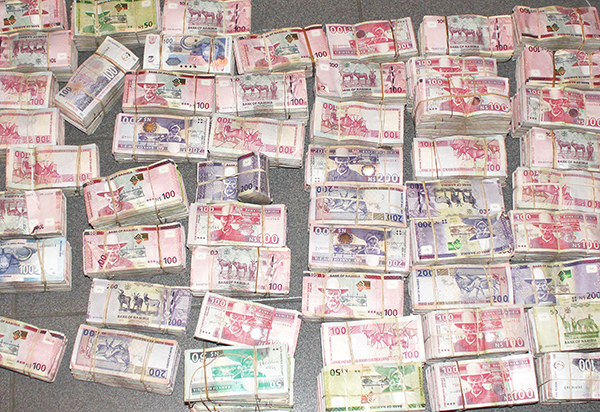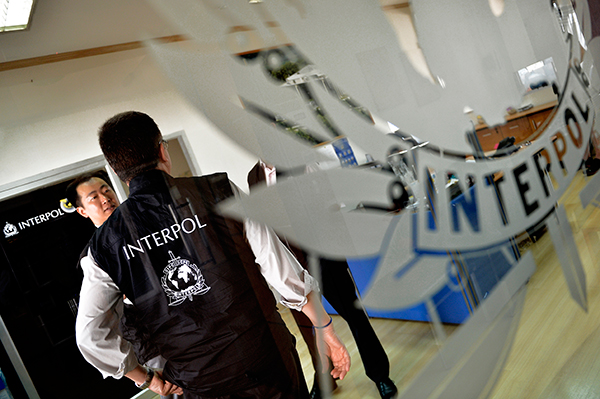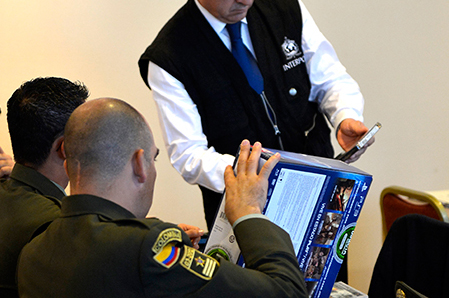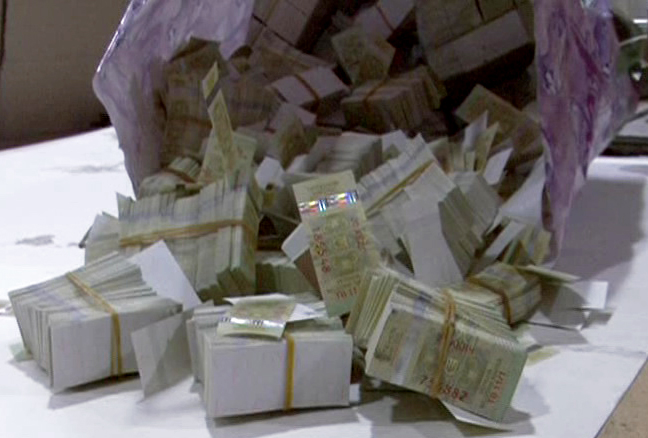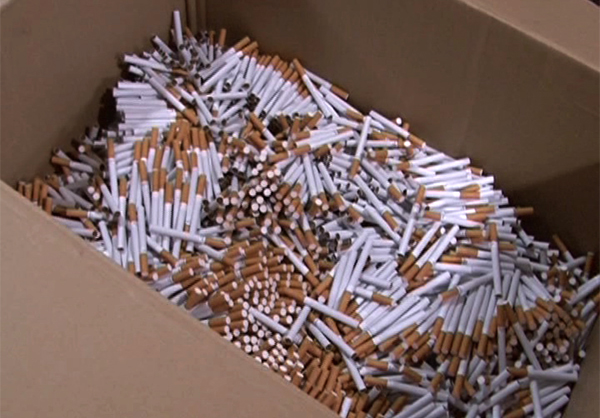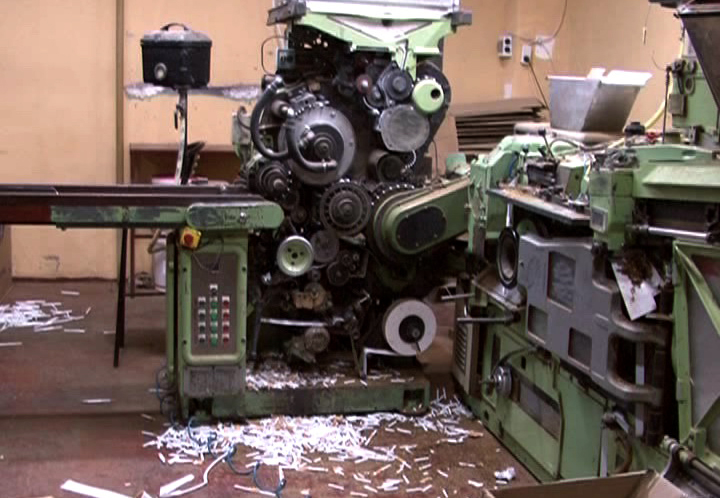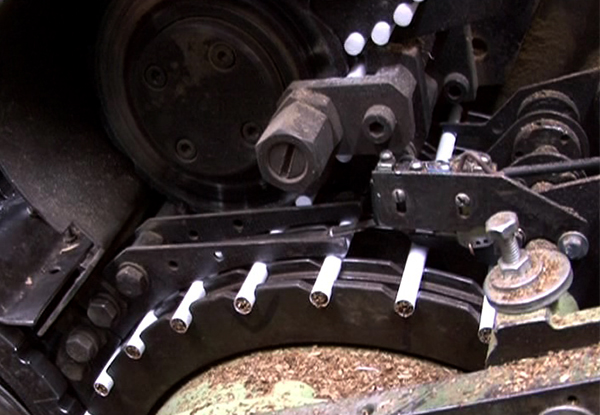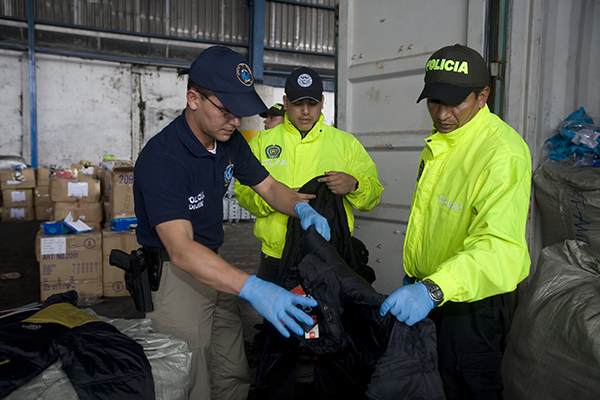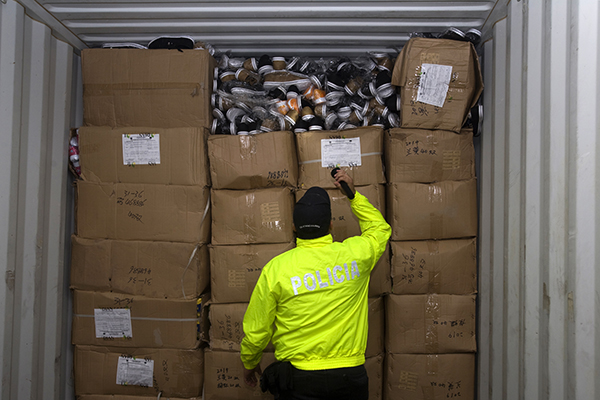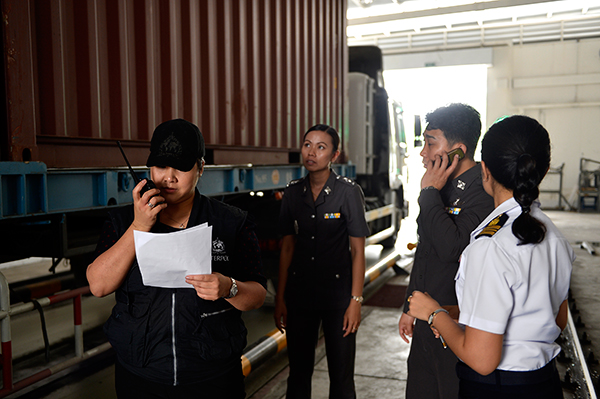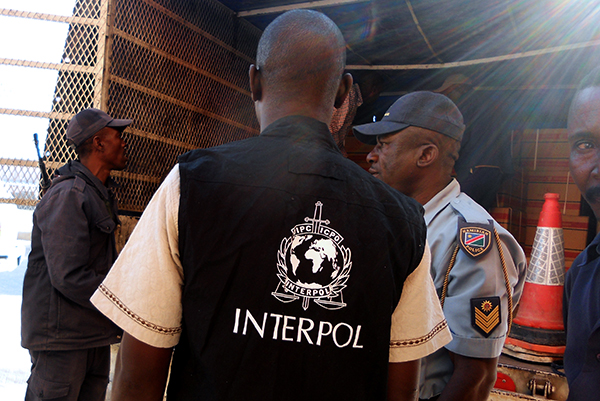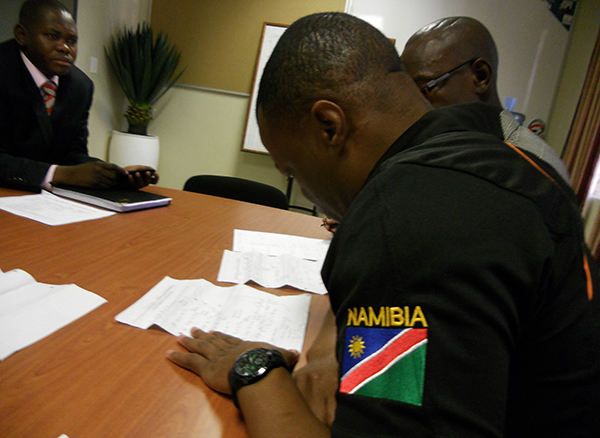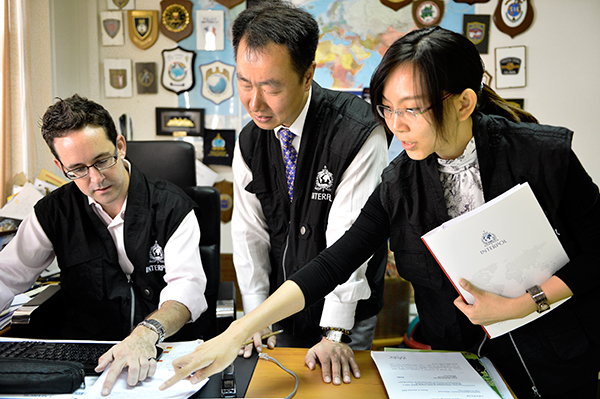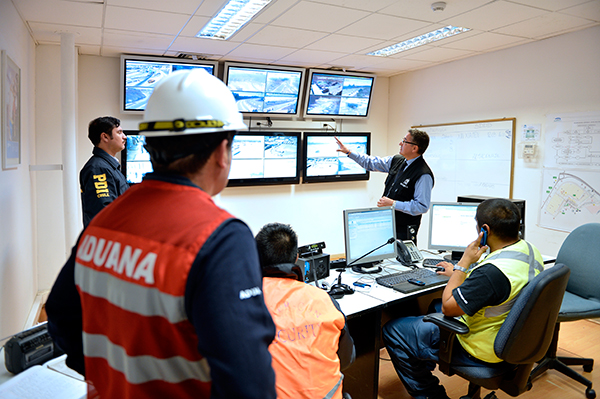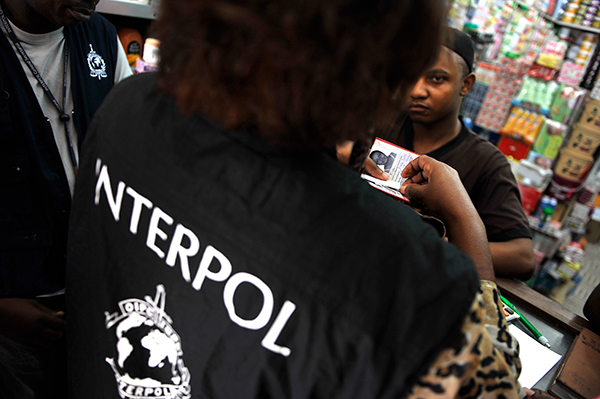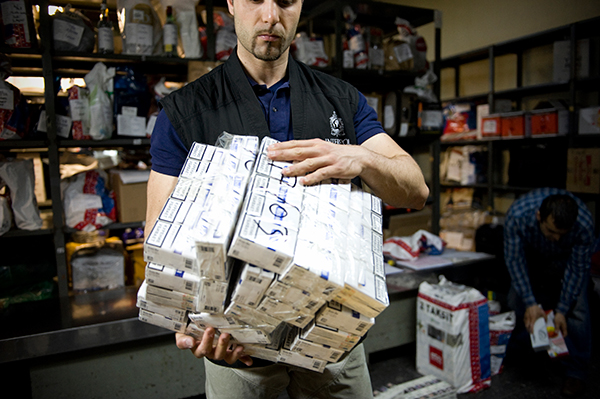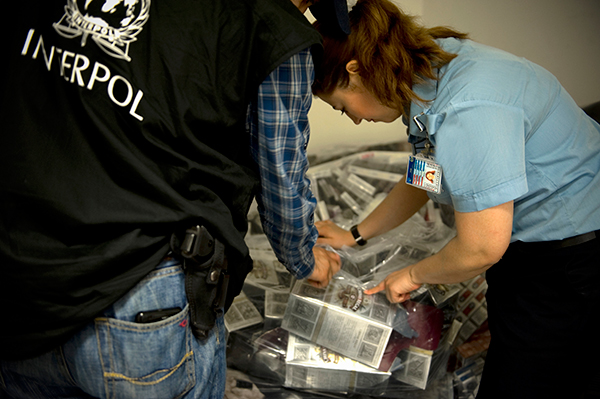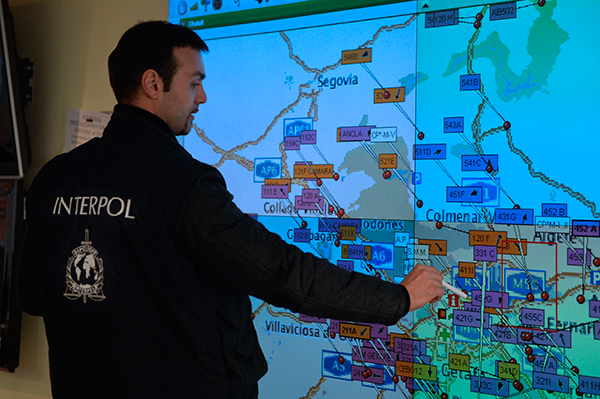LYON, France – Organized crime networks involved in industrial-scale illicit trade and counterfeiting have been smashed and more than 6,000 people arrested following a series of INTERPOL-led operations across the Americas, Africa, Asia and Europe.
Some 24 million fake goods worth nearly USD 133 million were seized during the operations codenamed Black Poseidon II (Europe), Etosha (Africa), Hurricane (Asia) and Pacific (Americas), coordinated by INTERPOL’s Trafficking in Illicit Goods and Counterfeiting unit throughout May and June.
“Trafficking in illicit goods and counterfeiting is not just about the profits being made by organized crime networks, it is also about the very real dangers that these products pose to public health and safety,” said Michael Ellis, head of INTERPOL’s Trafficking in Illicit Goods and Counterfeiting unit.
“Fake alcohol, counterfeit cooking oil and falsely-branded engines were all seized during these operations and none produced with any kind of quality control. These and other fake and illicit products represent a significant risk to unsuspecting members of the public who have no idea that what they are buying has not been legally produced or with any safety controls,” added Mr Ellis.
“With investigations now launched into possible money laundering and corruption cases, these operations have again underlined the wider issues connected to illicit trade and counterfeiting.
“They also serve as a reminder of what can be achieved when law enforcement agencies collaborate and present a united front against the criminal groups involved in illicit trade,” concluded Mr Ellis, praising the efforts of all the national agencies involved.
Hurricane, the first ever INTERPOL-led operation targeting illicit trade in Asia led to a number of significant successes. In southern China, a whole logistics chain behind the distribution of fake shampoo and toothpaste including 21 production sites, planes, containerized lorries, trains and websites operated by eight criminal syndicates was shut down.
In northern China, an organized crime network behind 10 illicit factories producing fake shavers was identified and dismantled, and nearly seven million counterfeits worth around USD 41 million recovered. A second organized crime network involved in the production of fake cooking oil in five different provinces was also broken up, leading to the arrest of 42 people and 56 sites shut down.
In Thailand, more than 400 people were arrested in some 430 interventions targeting street hawkers and retail shops selling counterfeit products including clothing, DVDs and electrical goods. In Vietnam, the Hanoi Metropolitan Police arrested an individual linked to USD 6 million worth of illicit electronic products.
More than 3,000 individuals were arrested in Turkey during Operation Black Poseidon II, with law enforcement and customs officials seizing nearly 12 million packets of illicitly traded cigarettes.
Fake and illicitly traded goods worth around USD 26 million were seized and nearly 200 people arrested or under investigation in Poland.
In Ukraine, officers discovered an illegal tobacco factory hidden underground and seized a quarter of a million packets of fake cigarettes. Law enforcement officials in Romania recovered nearly 22 million cigarettes and 2,150 kilograms of tobacco leaf in addition to seizing 136 vehicles used in illicit trafficking.
Operation Etosha in Namibia resulted in the seizure of 200,000 illicit or counterfeit items including clothing, perfume, alcohol, cigarettes, mobile telephones and toys worth more than USD 4 million, and some 90 individuals including 31 illegal immigrants were arrested.
A machine used to erase and change the expiration date on food containers, which could lead unsuspecting members of the public to unknowingly consume potentially dangerous products, was also recovered. An investigation into suspected money laundering was opened following the seizure of more than USD 300,000 in cash, in addition to a second investigation into a case of corruption and bribery.
In the Americas, Operation Pacific saw police in Colombia shut down two illegal distilleries producing fake versions of famous brand alcoholic and non-alcoholic drinks while, in Chile, some 94,000 bottles of counterfeit beer were seized.
Federal police in Brazil arrested three individuals suspected of providing illicit firearms to organized gangs in cities including Rio and Sao Paulo, and also seized shotguns, rifles, ammunition, silencers and telescopic sights. Officers in the tri-border area – Argentina, Brazil and Paraguay – also seized large quantities of illicit tobacco, mobile phones and counterfeit perfume.
In Lima, Peruvian officers discovered an underground workshop putting fake brands on illicit engines imported from China, before selling them to unsuspecting consumers as genuine products.
Launched in June 2012, the INTERPOL Trafficking in Illicit Goods and Counterfeiting Programme works to identify, disrupt and dismantle transnational organized networks behind the trafficking in illicit goods. Core activities include regional and global operations and specialized training courses for police. In 2012 alone, training sessions benefited 450 participants from police, customs and regulatory bodies from 30 countries.
Technical legal assistance can be provided at the request of member countries, while the Programme also works with the private sector to develop innovative services. Underlining the importance of business involvement, Philip Morris International has pledged EUR 15 million over a three-year period to help develop the programme.
“The effectiveness of an organization is greatly increased through partnerships and support, as clearly shown by the results achieved throughout the past year,” said Mr Ellis.
“We would encourage other partners and members of the private sector to engage with INTERPOL to provide both their expertise and to consider financial support where necessary, in order that INTERPOL can continue to be effective in what is our most basic task, to identify and arrest criminals and protect the public,” added Mr Ellis.
The following countries and territories took part in the INTERPOL-led operations:
- Black Poseidon II – Belarus, Moldova, Poland, Romania, Turkey, Ukraine;
- Etosha – Namibia;
- Hurricane – China, Hong Kong (China), Fiji, India, Indonesia, Philippines, Thailand, Vietnam;
- Pacific – Brazil, Chile, Colombia, Ecuador, Panama, Peru.




